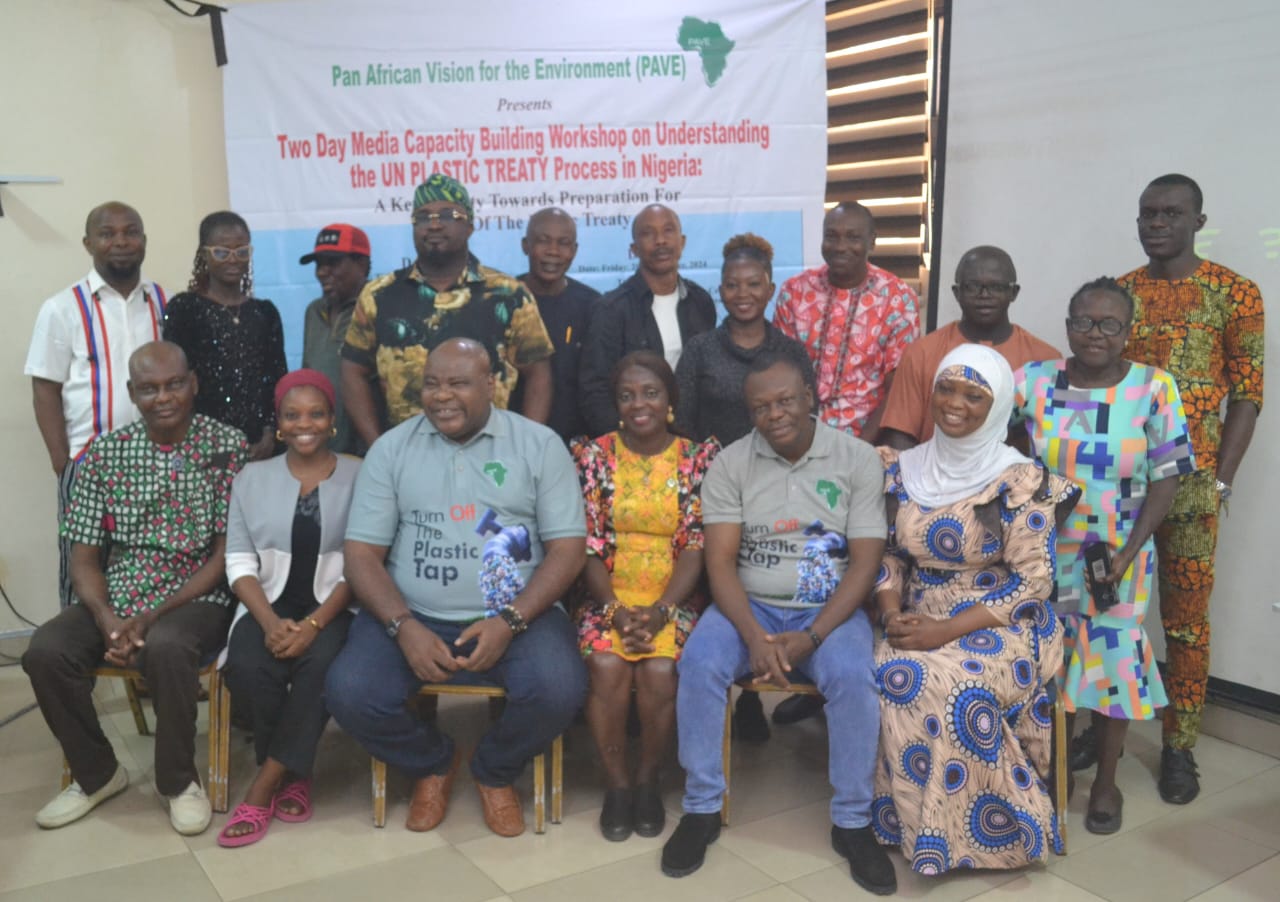Stakeholders have been raising concerns over Nigeria’s escalating plastic pollution crisis, describing recycling as an inadequate solution to the country’s environmental challenges.
The call was made during a two-day media workshop in Lagos on the United Nations Plastic Treaty process, organised by the Pan-African Vision for the Environment (PAVE) with support from the Global Greengrants Fund.
PAVE president, Anthony Akpan, emphasised the urgency of the crisis, noting that humans consume 1.2 million plastic bottles every minute, with nearly half of global plastic production used for single-use items. He also highlighted findings from the PlastChem Project, which revealed that plastics contain over 16,000 chemicals, including 4,200 identified as highly hazardous.
The toxins, Akpan warned, contaminate food, homes, and natural ecosystems, leading to cancer, endocrine disruptions, and respiratory diseases, Akpan said, adding that, “The leakage of plastics into the environment could double to 44 million tonnes annually, with accumulation in aquatic ecosystems tripling. Africa has become a dumping ground for plastic waste from wealthier nations.”
In Nigeria, Akpan criticised the National Policy on Plastic Waste Management’s target to ban single-use plastics by 2028, describing it as insufficiently ambitious. He urged the government to move the deadline to 2025, prioritizing Styrofoam, microbeads, and non-recyclable carrier bags.
Senior program officer at the Sustainable Research and Action for Environmental Development (SRADev Nigeria), Victor Fabunmi, highlighted Nigeria’s significant contribution to plastic pollution as Africa’s third-largest producer of plastic resins and sole resin producer in West and Central Africa. Despite producing nearly 500,000 tons of resin annually, Nigeria remains heavily reliant on imports to meet demand, he lamented.
Fabunmi noted that while a bill to ban single-use plastics was passed in 2019, it has yet to be signed into law. Similarly, the National Environmental (Plastic Waste Control) Regulations drafted in 2023 remain ungazetted, despite proposing ambitious steps like banning 15 types of single-use plastics. He applauded states like Lagos and Abia for implementing stricter measures, including phasing out Styrofoam and polyethylene bags.
Executive director of Renevlyn Development Initiative, Philip Jakpor, linked plastic production to climate change, citing a UN report that estimated 1.8 billion tonnes of greenhouse gas emissions from plastics in 2019—a figure projected to triple by 2060. Jakpor also debunked recycling as a comprehensive solution, noting that only 9 percent of plastics ever produced have been recycled, while the rest pollutes landfills, waterways, or is incinerated, releasing harmful toxins.
He, therefore, tasked the media on more reportage on these issues. “Criticism of the current models must go pari passu recommended and proven solutions. We must muster communities to take their destinies in their own hands by demanding justice. Our reports must nudge policy makers to make just and climate-friendly laws. Delegates to the negotiations must uphold the demands of their people,” he urged.
The workshop culminated in key recommendations, including accelerating Nigeria’s timeline for banning single-use plastics, increasing public awareness, and integrating environmental education into school curricula. Stakeholders also called for a global database on plastic chemicals, filling policy gaps in Nigeria’s waste management framework, and promoting sustainable alternatives like rubber. Delegates urged the government to take decisive action, involving grassroots communities and waste pickers in solutions while ensuring transparency and accountability in managing the plastic crisis.
